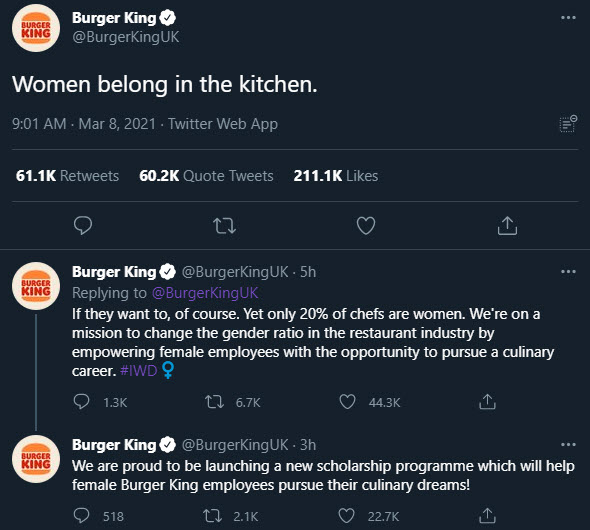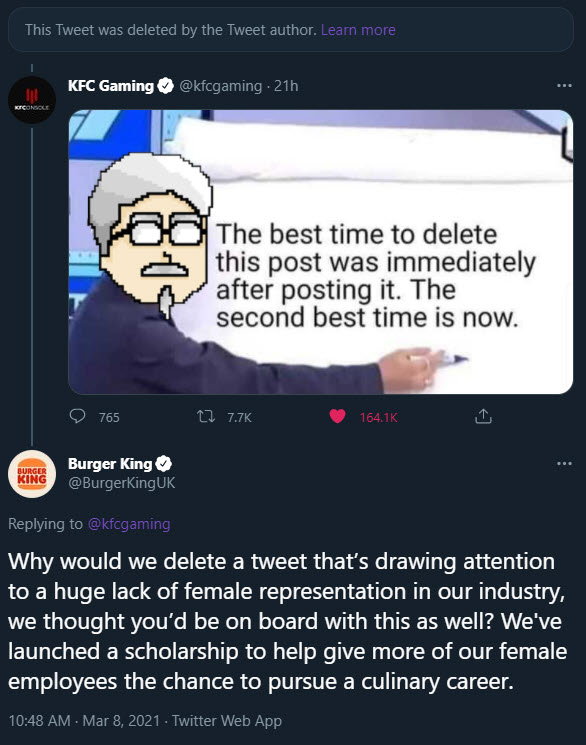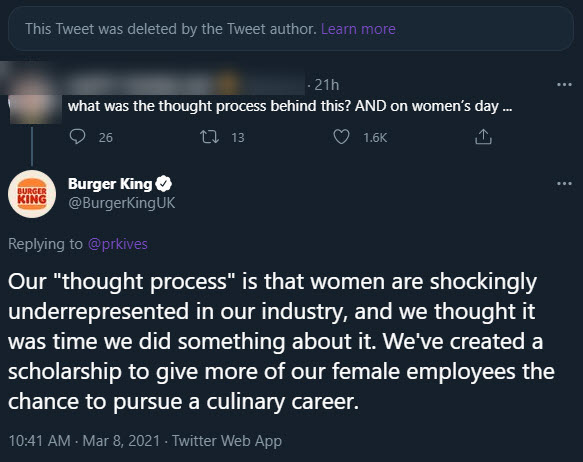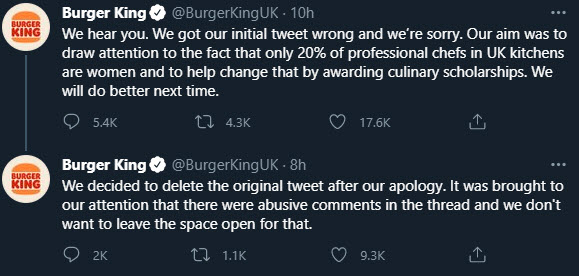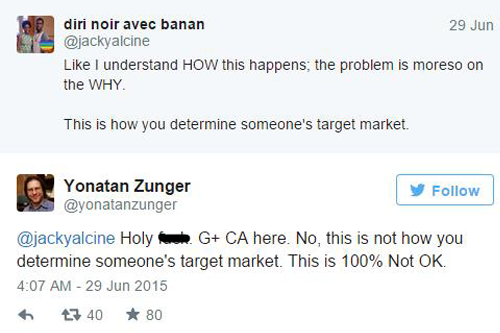It’s brilliant that more brands are becoming aware of the importance of speaking out about important social and political issues. While it’s great that brands want to show support to specific communities during awareness days, weeks or months, the work mustn’t stop there.
A vibrant campaign around PRIDE, for example, can be a tremendous way to celebrate the community, but the community really benefits from the actions the brand takes year-round.
Consumers are far more sceptical these days, and people from communities that are used to being marginalised and under-represented are starting to talk more about brands that simply ‘say the right thing at the right time’ and fail to make real change. It’s inauthentic, and people will call the brand out for this behaviour.
Words backed up with action
No matter how stunning your creative campaign is, it’s always better when you’re also making lasting changes.
For example, a campaign around the importance of diversity during Black History Month or in support of #BlackLivesMatter is important, but when you head to the brand’s website and see their all-white leadership team, it’s clear that diversity hasn’t been enough of a priority for the brand so far.
What’s the brand doing to change that? Can the brand point to diversified recruitment? Is there a mentorship programme in place to prepare people for leadership roles? (The same principle applies to things like International Women’s Day.)
It’s great to showcase your values by supporting awareness days and social justice campaigns, but people need to see action. It’s proof that the brand really does care about, and is trying to understand, the issues people are facing.
Prepare to be held to account
Social media has democratised communication. Brands are getting used to being held to account for their words and actions.
While it may be tempting to lump all campaigners together under the term ‘keyboard warriors’, the truth is many people who take the time to pressure a brand are doing so out of a genuine concern and need for change.
Campaigners existed long before social media, but the internet has brought people together to support each other in campaigning for a shared goal. It’s also made business practices more transparent. People can see what you’re doing and will ask if it matches with your marketing.
Sometimes they’ll be angry, but they often have reason to be. Sometimes it’s better to step away from policing people’s tone and ask what the message is behind the rhetoric. What is the change they need to see? How can your brand help?
The brand should never be the star of the show
Advocacy should never be about the person or organisation in the position of power. Making people aware of what action you’re taking to help is important, but it also needs to be done in a way that doesn’t look self-congratulatory or look like an attempt at going viral off the back of an important issue.
Take this tweet that Burger King posted on International Women’s Day:
The brand met with a swift backlash, and as you can see, posted an update two hours after its original post to say what action it was taking to help women in the workplace.
However, it also doubled down and became defensive when replying to people (and brands) calling for the original tweet’s deletion.
Eventually, the brand deleted the tweet and apologised. For the hours that the tweet was online, it had attracted misogynistic abuse and trolling – which is exactly the opposite of what the brand had intended.
Joking about an issue or using shock tactics, can result in a discussion that’s more about the brand’s choice of marketing than the issue the day, week or month should be focusing on. As we saw with Burger King, it can also result in attracting trolls and abusers to the community that you’re trying to support.
Taking part in awareness events has to be about more than posting a supportive content. If there’s a practical way the brand can start to make changes, it’s always better to share what you’re doing. Sometimes saying the right thing isn’t enough to show that you want to make a lasting change.
–
Featured image by Neil Thomas on Unsplash


